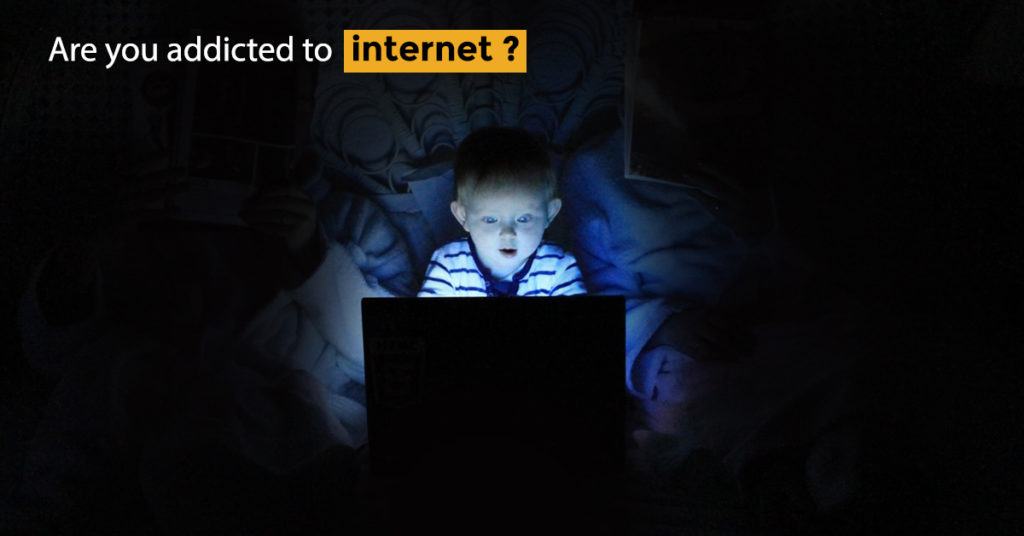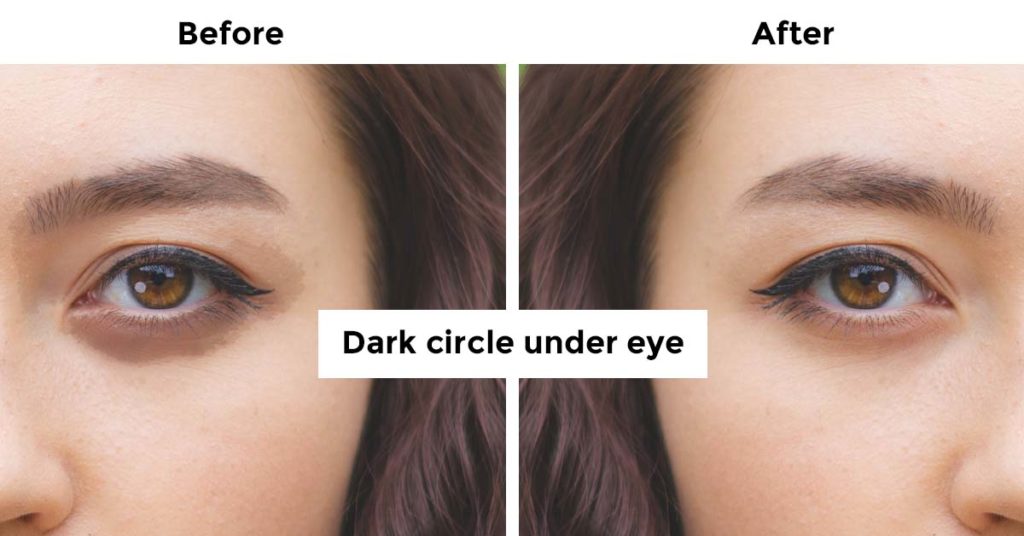Article written by Ravindran O.S & Aruna Mani

Internet addiction
Internet addiction is characterized by excessive use of the internet, and that is detrimental to the user. There exists no clear definition for internet addiction as there is lot of uncertainty and disagreement among experts about overuse of the internet, the symptoms, how to measure it and even the language used to describe it as explained by the American Psychiatric Association. An American psychiatrist Jerald Block, (2008) stated that there exists three types of internet addiction: excessive gaming, sexual preoccupations, and email/text messaging, and all three types share four components: excessive use, withdrawal, tolerance for the costs of the activity and negative repercussions.
Different Types of Internet Addiction
A foremost expert on Internet Addiction Disorder, Young (2011) grouped internet addiction into six subtypes which are as follows:
- Internet Gaming
- Internet Gambling
- Internet Infidelity
- Internet Pornography/ Cyber sexual activities
- Information Overload
- Internet Compulsive buying
Personality Traits and Internet Addiction
Many research studies conducted in the past reveal the strong association between internet addiction and personality traits. Previous studies found a positive association between problematic internet use and interpersonal problems such as social skill deficiency, loneliness and social anxiety (Caplan, 2005, 2007., Morahan-Martin and Schumacher, 2000, 2003.,). Similar findings from another study revealed shy people or those disappointed by real relationships exhibit a certain behavior style which aims at finding a way to reach the outer world so that they are able to control it (Morrison and Gore, 2010). Impulsive behaviours (Reed et al, 2015), loneliness, alexithymia and suicide (Alpasla, et al, 2015) are also associated with excessive internet use. In young adults, social anxiety has been linked with internet addiction (Weinstein, et al, 2015), lower levels of family functioning, life satisfaction, and problems in family interactions (Wartberg, et al, 2015). It was also found to give rise to incidences of substance use, poor emotional well-being, and decreased academic performance in adolescents (Rucker, et al, 2015) and increased academic stress (Jun & Choi, 2015). People found to be higher in narcissistic personality traits tend to be more active on facebook and other social networking sites in order to present themselves favourably online because the virtual environments empowers them to construct their ideal selves (Buffardi & Campbell, 2008; Mehdizadeh, 2010).
Warning Signs for Internet Addiction
Diagnostic assessment of Internet Addiction Disorder proposed by Beard (2005) is widely accepted. He proposed five diagnostic criteria in the identification of Internet Addiction Disorder in the general population which are as follows:
- Is preoccupied with the Internet (constantly thinks about past use or future use)
- Needs to use Internet with increased amounts of time to gain satisfaction
- Has made unsuccessful efforts to control, cut back, or stop use of the Internet
- Is restless, moody, depressed, or irritable when attempting to control Internet use
- Has stayed online longer than originally intended
In addition, Beard suggested at least one of the following must be present in a diagnosis of Internet Addiction Disorder:
- Has jeopardized or risked the loss of a significant relationship, job, educational, or career opportunity because of the Internet
- Has lied to family members, therapists, or others to conceal their involvement with the Internet
- Uses the Internet as a way of escaping from problems or to relieve a dysphoric mood (e.g., guilt, anxiety, depression, helplessness).
Effect of Internet Addiction
Effects of internet addiction can manifest as physical or emotional. Some of the common emotional reactions are feelings of guilt, dishonesty, difficulty in keeping up with deadlines, poor time management, isolation, avoidance behavior, and agitation. Some of the physical effects manifested include headache, weight loss or gain, sleep disturbances, backaches, vision problems, and reduced self-care. Prolonged internet addiction has also been observed to have correlation with psychiatric and psychosocial conditions. Some of the commonly observed conditions are low self-esteem, impulsivity, poor sleep quality, mood disorders, suicide, ADHD, social phobia and depression, and in some cases even leading to loss of job, bankruptcy, and failed relationships.
Management
Internet addiction, though is not an official diagnosis in the Diagnostic Statistical Manual, however, it is believed to share similarities with impulse control disorders and gambling addiction. Treatment for internet addiction argued by some authors indicate that total abstinence from the internet should not be the goal of any intervention, and that instead an abstinence from problematic online activities and regulated use of the activity should be achieved (Cash H, et al. 2012, Khazaal Y, et al. 2012). However, more empirical evidence is needed to validate such claims. In terms of psychological treatment for internet addiction, cognitive-behavioral therapy is the most influential.
- Cognitive behavior therapy: In this model, the first stage of treatment is focussed on the behavioral aspects of the patient, so that at subsequent stages the focus of treatment is gradually shifted towards development of positive cognitive assumptions. During therapy, internet addicts identify false beliefs and learn how to modify them into more adaptive ones (Przepiorkal AM, 2014). Further, the therapy approach also promotes that patients should monitor their thoughts in order to identify affective and situational triggers associated with their addictive behavior (Khazaal Y, et al. 2012).
References
- Caplan, S. E. (2005). A social skill account of problematic Internet use. The Journal of Communication, 55(4), 4721-736. doi:10.1111/j.1460-2466.2005.tb03019.x
- Caplan, S. E. (2007). Relations among loneliness, social anxiety and problematic Internet use. Cyberpsychology & Behavior, 10, 234-242. doi:10.1089/cpb.2006.9963
- “Computer/Internet Addiction Symptoms, Causes and Effects” (2019). Retrieved from https://www.psychguides.com/behavioral-disorders/computer-internet-addiction/
- Gregory, C., (2019). Internet Addiction Disorder: Signs, symptoms, diagnosis, and treatments for those who may be addicted to the Web on their PC or smartphone https://www.psycom.net/iadcriteria.html
- Halley M Pontes, Daria J Kuss, Mark D Griffiths (2015). Clinical psychology of
Internet addiction: a review of its conceptualization, prevalence, neuronal processes, and implications for treatment. Neuroscience and Neuroeconomics. 2015. 4, 11-23. doi: https://doi.org/10.2147/NAN.S60982
- Kayis, A.R., Satici, S.A., Yilmaz, M.F., Simsek, D., Ceyhan, E., Bakioglu, F., (2016).
Big five-personality trait and internet addiction: A meta-analysis review. Computers
in Human Behavior
- Morahan-Martin, J., & Schumacher, P. (2000). Incidence and correlates of pathological Internet use among college students. Computers in Human Behavior, 16(1), 113-29. doi:10.1016/S0747-5632(99)00049-7
- Morahan-Martin, J., & Schumacher, P. (2003). Loneliness and social uses of the Internet. Computers in Human Behavior, 19(6), 6659-671. doi:10.1016/S0747-5632(03)00040-2
- Morrison, C. M., & Gore, H. (2010). The relationship between excessive Internet use and depression: A questionnaire-based study of 1,319 young people and adults. Psychopathology, 43(2), 2121-126. doi:10.1159/000277001
- Przepiorka AM, Blachnio A, Miziak B, Czuczwar SJ. Clinical approached to treatment of Internet addiction. Pharmacol Rep. 2014;66(2):187-191.
- “Virtual Addiction” David N. Greenfield, Ph.D., “Caught in the Net” Dr. Kimberly Young, Center for Internet Addiction Recovery, American Psychiatric Association.
- Young, K. (2011). Internet Addiction A Handbook and Guide to Evaluation and Treatment.
